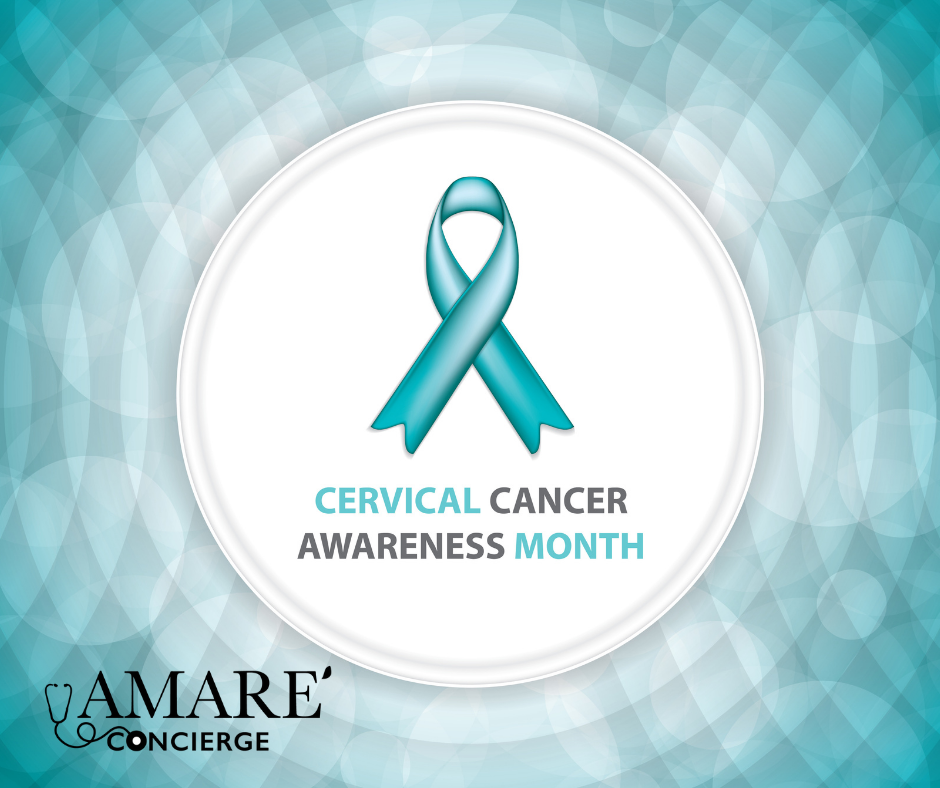It’s cervical cancer awareness month and we must discuss cervical cancer, how you get it, and you can prevent it. Cervical cancer is caused by HPV (human papillomavirus). Read on to learn more.
What is HPV?
HPV (human papillomavirus) is a common virus that affects both females and males. There are more than 100 types of HPV. Most of them are relatively harmless, like the ones that cause common warts on the hands and feet. For most people, the body’s defense system will clear the virus. However, there are a few types of HPV you should know about.
Genital HPV:
About 30 types of HPV affect the genital area.
– Some are high-risk types (such as HPV Types 16 and 18) that can cause abnormal cervical cells and cervical cancer
– Others are low-risk types (such as HPV Types 6 and 11) that can cause genital warts.
Genital Warts:
Genital warts are usually flesh-colored growths that are most often caused by certain low-risk types of HPV. Anyone who has any kind of sexual activity involving genital contact can get HPV and genital warts intercourse isn’t necessary. And many people with HPV do not have genital warts or any other symptoms, so they can pass the virus without even knowing it. Warts may appear within weeks, months, or sometimes not at all.
More common than you might think:
The Center for Disease Control (CDC) estimates that 80% of women will have had genital HPV by age 50. It’s estimated that most people get HPV within their first 2 to 3 years of becoming sexually active.
A cancer vaccine?
Gardasil is a vaccine that helps protect against the following diseases (these are diseases caused by the HPV types in the vaccine (6, 11, 16, and 18)):
– Cervical cancer
– Abnormal and precancerous cervical lesions
– Abnormal and precancerous vaginal lesions
– Genital warts
Gardasil is indicated for males and females ages 9 through 26. Gardasil is intended to prevent, not treat, the above-mentioned diseases. However, you may benefit from Gardasil if you already have HPV. This is because most people are not infected with all four types of HPV contained in the vaccine. In clinical trials, individuals with one or more vaccine-related HPV types before vaccination were protected from disease caused by the remaining vaccine HPV types.
Additionally, it is important to see your OB/GYN for your annual cervical exam and pap smear to assess for any cervical changes.





